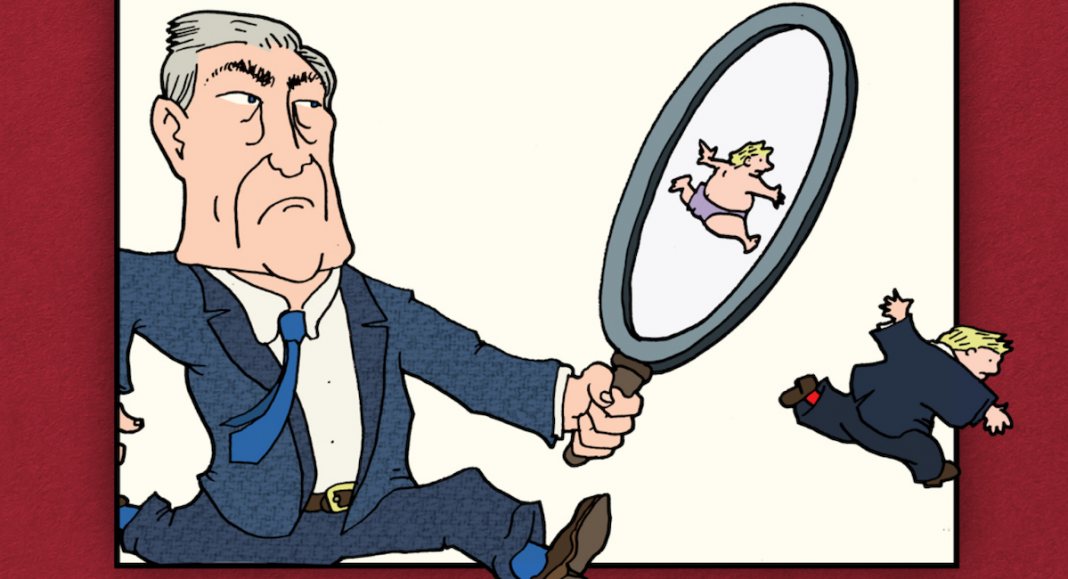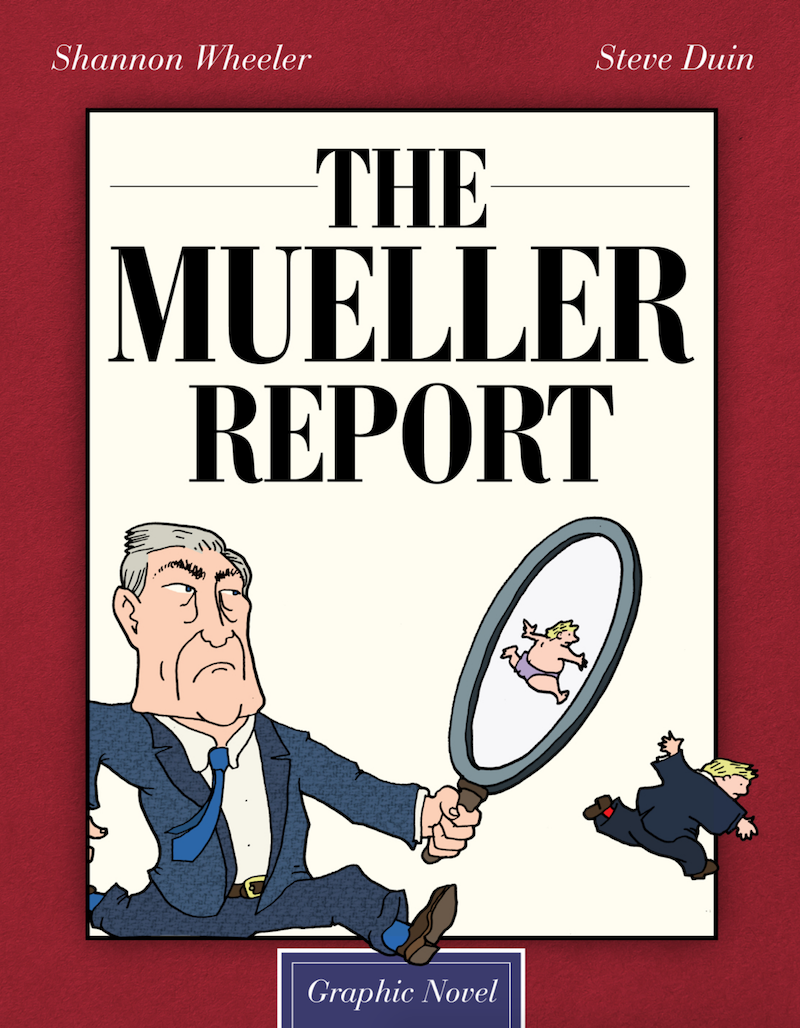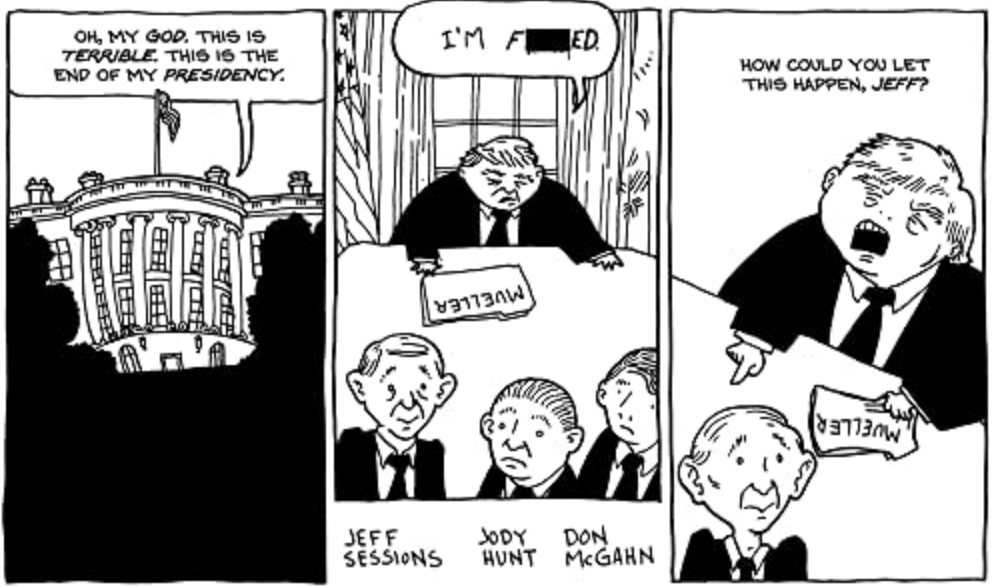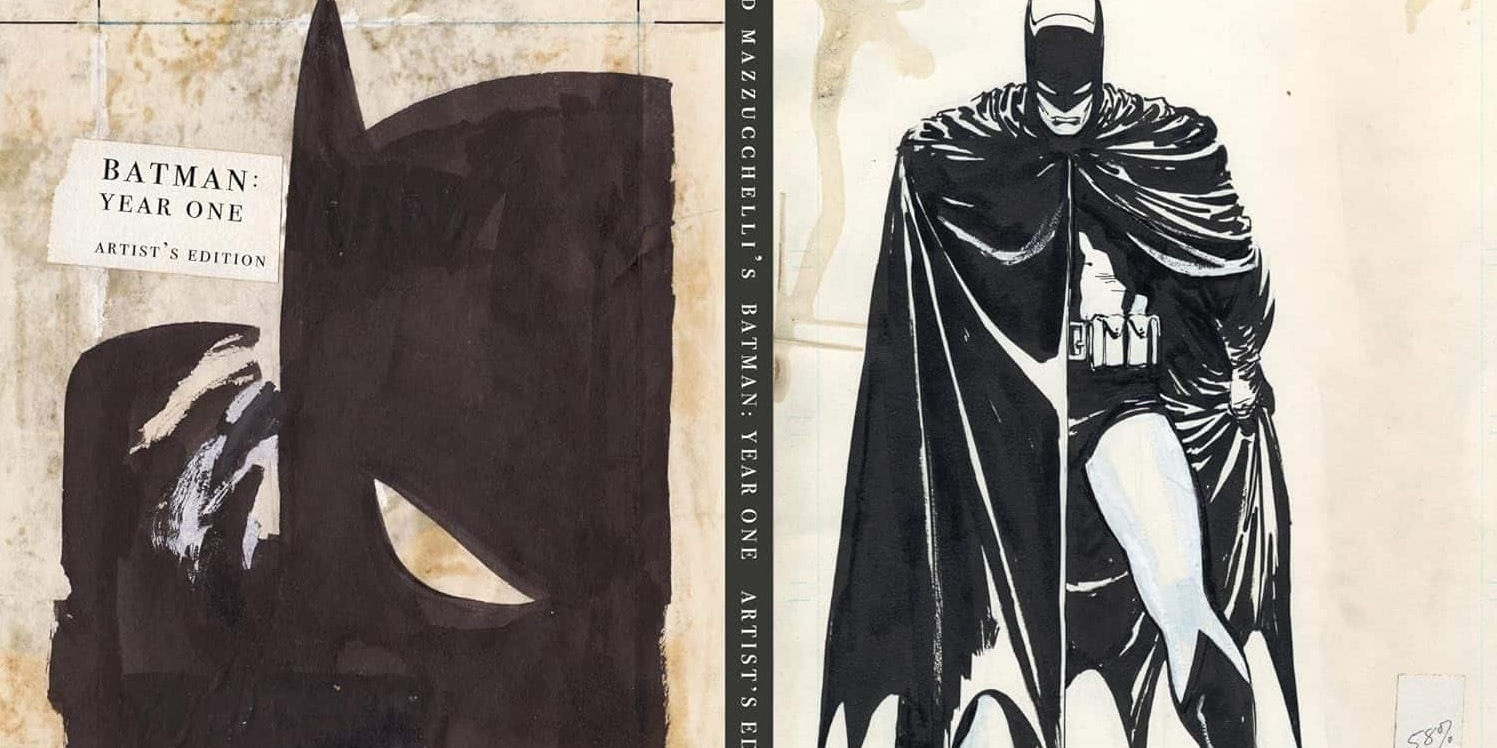The Mueller Report
Written by Shannon Wheeler
Illustrated by Steve Duin
Publisher: IDW
Buy it here
4 years ago, the President set a precedent. After his inauguration, Donald Trump and his staff boasted that the crowds at his swearing-in ceremony had vastly outnumbered those at his predecessor’s. He lied, even when shown evidence that he was wrong, and called the evidence a lie. It’s his single best and most-employed strategy: deny, ignore, and don’t ever recall. With the coronavirus pandemic at its peak, the United States Postal Service under threat, and ongoing protests for racial justice, it’s easy to lose track of Trump’s seemingly never-ending list of offenses.
That’s the power of IDW’s The Mueller Report by Shannon Wheeler and Steve Duin: it’s a concise, matter-of-fact graphic novel adaptation of the document of the same name, which lays out the events around Russian interference and the Trump Campaign’s involvement in the 2016 election, all in a powerfully sobering afternoon read. To be clear, much of that power lies in the investigation itself. The crimes (and technically-not-crimes) committed are that outrageous, which shouldn’t be news at this point. The skill in this adaptation is in its brevity, and its reserved usage of hyperbole for events that already verge on satire.
The marketing for Wheeler and Duin’s take on The Mueller Report (not to be confused with WaPo’s The Mueller Report Illustrated) makes it out to be the everyman’s interpretation of the Russia Investigation. That is precisely what it is. The monster of a text Special Counsel Robert Mueller and his team compiled is riddled with dense legalese and references to dozens of political actors whose names have already been lost to recent memory in favor of the next, current dumpster fire. Wheeler and Duin circumvent that smartly with frequent captions identifying characters by name, position, and time spent in said position (another reminder of how quickly Trump cycled through employees during this time).
Structurally, the story is separated into chapters of varying length, typically introduced by Mueller’s character, then acted out by those present at the actual events. Their names are used liberally, making those captions easy to use and, in spite of how convoluted things get, the story remains easy to follow. Dialogue is fairly efficient throughout and normally only requires a re-read to confirm that, yes, you did read that correctly and it did, indeed, happen.
Ironically, it’s in this accessibility that the book’s satire is most prevalent — and even then it’s fairly tame. For instance, Trump is easily recognized by an incessant glazed-over look that puts him in close relation to Homer Simpson. Sarah Huckabee Sanders maintains a thumb-like figure that distinguishes her in a crowd. As expected, every character maintains their particular set of visual cues, resulting in quick identification and catharsis. Dialogue rides a similar line. Without being present for these conversations, it’s impossible to tell how they went down and, as Mueller’s team itself experienced, even more difficult to determine intent.
Brevity in many of these conversations naturally leans into the incompetence or disingenuousness of the characters in question. Hundreds of pages of text boiled down to less than two-hundred pages of a comic are going to lose nuance. Wheeler and Duin don’t have the real estate to recount the detailed negotiations between Paul Manafort and the Trump team beyond “I’ll work for free” and “you’re hired,” for instance. In describing only the need-to-know, a clear picture of corruption is painted; one that critics might describe as biased and negative. But really, the question of these characters’ morals doesn’t hinge on whether they’re good or bad, but more to what degree are they creating harm. For a campaign so blatantly malicious, truth is sometimes so unbelievable — especially to the privileged — that it reads as satire.
With the Presidential election just around the corner, Steve Bannon recently arrested, and a renewed interest in the Mueller Report in the Senate, the timing of this comic is frankly uncanny. It’s a primer for the potential sequel to the document that laid out Russian interference in the 2016 election and, because of its ‘no collusion’ verdict, was rendered essentially impotent. The President remained in office following a null impeachment vote (that was how 2020 kicked off, remember?) and, as Wheeler and Duin warn, “the Russians are just getting started.” That’s the power of the document itself, as well as of this adaptation. It’s a reminder, and a warning, of how compromised our racist, capitalist system of democracy is. The reality is that Trump’s first official lie as President pales to the deception that paved his way into the position in the first place. Regardless of format, the content of The Mueller Report is essential reading, and Wheeler and Duin’s take is seamless.









